
Find Help
More Items From Ergsy search
-

Postpartum Health: Mother and Baby
Relevance: 100%
-

How is postnatal depression different from the 'baby blues'?
Relevance: 40%
-
Does the mother’s blood type affect jaundice in the newborn?
Relevance: 37%
-

How does postnatal depression affect bonding with the baby?
Relevance: 33%
-
What can increase the risk of jaundice in a baby?
Relevance: 33%
-

Jaundice in babies
Relevance: 32%
-

Why do babies get jaundice?
Relevance: 32%
-
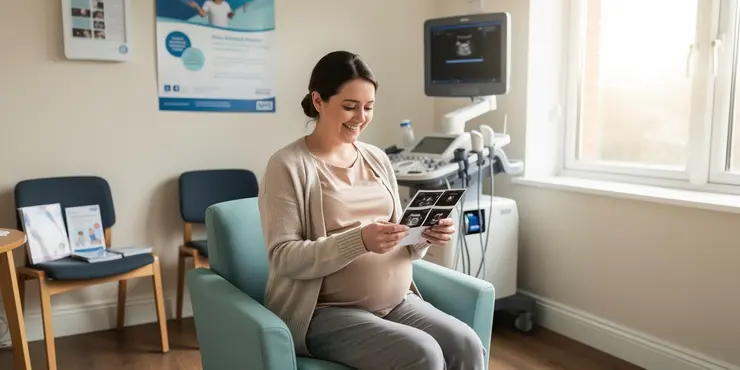
Screening tests for you and your baby | NHS
Relevance: 30%
-
Can jaundice reoccur in babies?
Relevance: 29%
-

How long will I stay in hospital after a C-section?
Relevance: 27%
-

Are baby sleep pillows safe?
Relevance: 26%
-

Is it okay to use a baby sleep positioner?
Relevance: 26%
-

What are the symptoms of jaundice in a baby?
Relevance: 26%
-
Can jaundice in newborns affect future health?
Relevance: 26%
-
Do formula-fed babies get jaundice?
Relevance: 25%
-
Is it safe to sunbathe a baby with jaundice?
Relevance: 25%
-
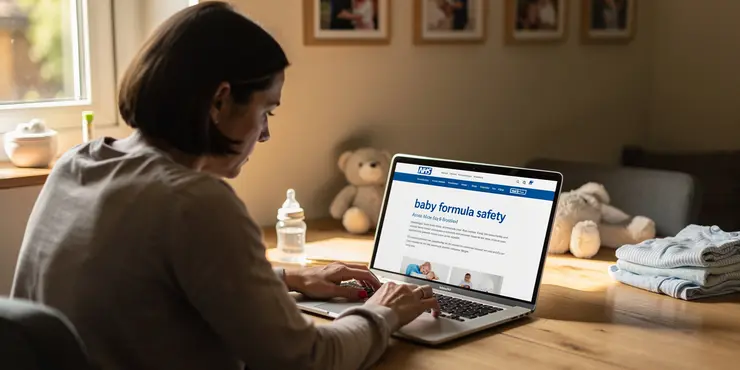
Where can I find information on contaminated baby formula?
Relevance: 25%
-

Are there any benefits to using baby sleep pillows?
Relevance: 25%
-
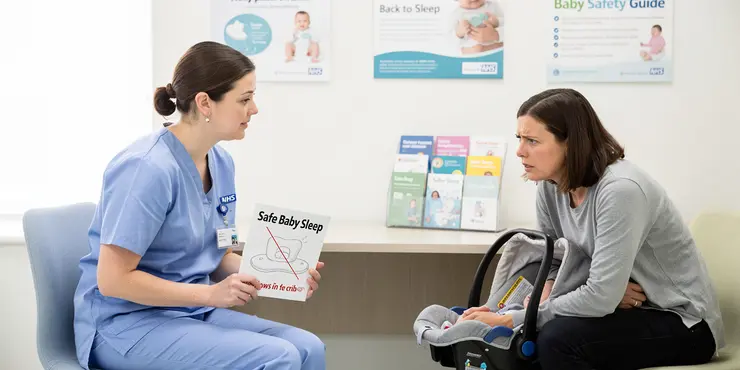
Why are baby sleep pillows not safe for infants?
Relevance: 24%
-

How is postnatal depression diagnosed?
Relevance: 24%
-

Are there any regulations on the sale of baby sleep pillows?
Relevance: 24%
-
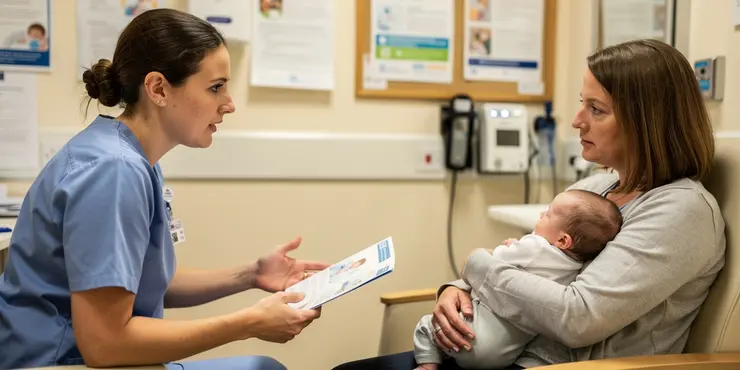
What are the risks associated with baby sleep pillows?
Relevance: 24%
-

What is postnatal depression?
Relevance: 24%
-

What signs indicate spoiled baby food?
Relevance: 24%
-

What storage practices should I follow for baby food?
Relevance: 24%
-

What alternatives to baby sleep pillows are considered safe?
Relevance: 23%
-
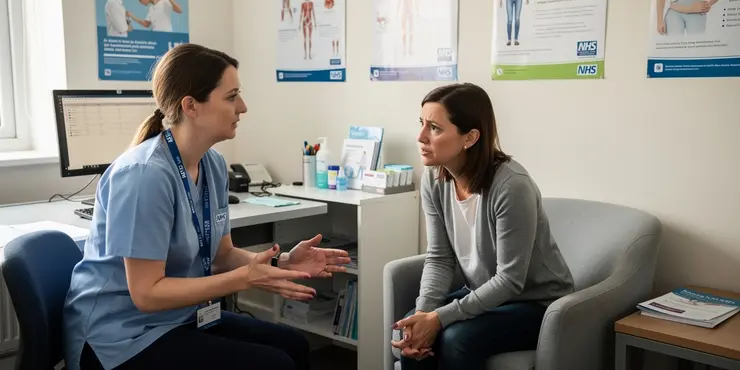
At what age is it safe for a baby to use a pillow?
Relevance: 23%
-

How do I know if my baby food is safe?
Relevance: 23%
-

Can baby sleep pillows help with reflux issues?
Relevance: 23%
-

My baby has a hearing loss - what next?
Relevance: 23%
-
Can baby sleep pillows prevent flat head syndrome?
Relevance: 23%
-

How can I tell if homemade baby food is safe?
Relevance: 23%
-

How long can homemade baby food be stored in the fridge?
Relevance: 23%
-
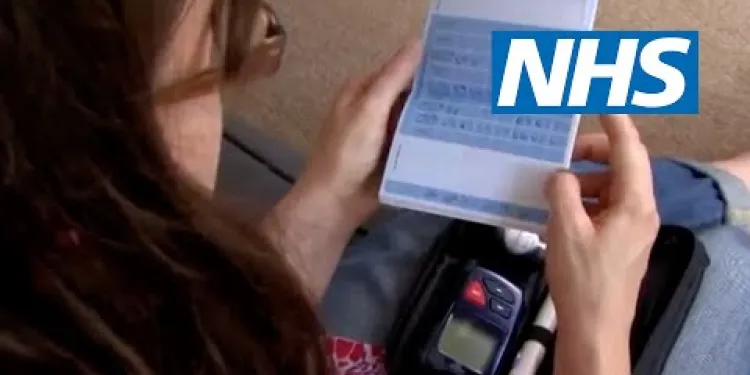
Gestational diabetes | NHS
Relevance: 22%
-

Can I breastfeed after a Caesarean birth?
Relevance: 22%
-
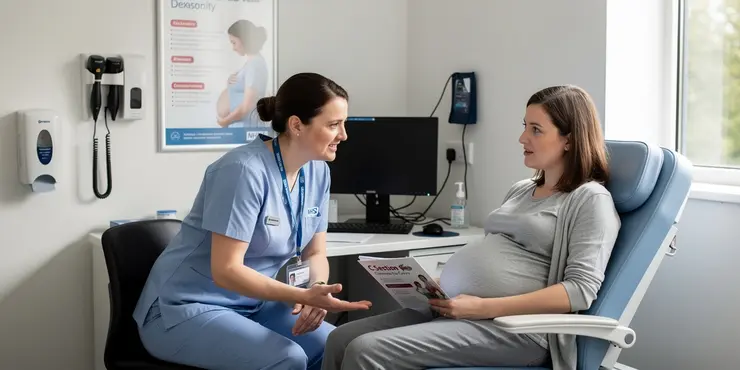
Why might a Caesarean birth be necessary?
Relevance: 22%
-

HIV and pregnancy | NHS
Relevance: 22%
-

Do crib wedges pose the same risks as baby sleep pillows?
Relevance: 22%
-
What should I do if my baby has a preference for sleeping with a pillow?
Relevance: 22%
-

Can I breastfeed immediately after a Caesarean section under spinal anaesthesia?
Relevance: 22%
Postpartum Health: Mother and Baby
Understanding Postpartum Health
Postpartum health refers to the physical and mental well-being of the mother and baby following childbirth. In the United Kingdom, the postpartum period is typically considered to last for six weeks after birth. During this time, new mothers and their babies undergo significant changes and adjustments. Ensuring proper care and support can help make this transition smoother and healthier for both mother and child.
Mother's Physical Health
Physical recovery from childbirth involves various aspects, including healing from any tears or incisions, managing pain, and gradually returning to pre-pregnancy physical activity. Mothers are usually advised to attend a postnatal check-up six to eight weeks after birth to monitor recovery. Nutrition and hydration are paramount during this period, along with adequate rest. Breastfeeding mothers need additional calories and should focus on a well-balanced diet rich in fruits, vegetables, and protein.
Mental Health and Emotional Well-being
Mental health is just as crucial as physical health in the postpartum period. Many new mothers experience "baby blues," which include mood swings and mild depression. However, some may suffer from more severe forms of depression, known as postpartum depression. It's essential for new mothers to seek help if they are experiencing overwhelming feelings of sadness, anxiety, or fatigue. The NHS offers various resources and support services for postpartum mental health.
Baby's Health and Development
Newborns require regular feeding, which can be through breastfeeding or formula, and frequent nappy changes. Monitoring the baby’s weight and developmental milestones is important. The NHS provides a schedule for health visits and vaccinations critical for protecting the baby from various diseases. Additionally, creating a safe sleep environment, such as placing the baby on their back and avoiding loose bedding, helps reduce the risk of Sudden Infant Death Syndrome (SIDS).
Community and Healthcare Support
The UK has various support systems in place for new mothers and their babies. Health visitors, midwives, and general practitioners (GPs) play a crucial role in postpartum care. They offer guidance on breastfeeding, postnatal exercises, and mental health resources. Local support groups and online communities can provide emotional support and practical advice for new parents.
Conclusion
Postpartum health for both mother and baby requires comprehensive attention to physical, mental, and emotional well-being. In the UK, leveraging available healthcare resources and support systems can significantly improve the postpartum experience. Prioritizing health and seeking help when needed ensures a strong start for both mother and infant.
Postpartum Health: Mother and Baby
Understanding Postpartum Health
Postpartum health means how a mother and baby feel after birth. In the UK, this time usually lasts for six weeks. During these weeks, moms and babies go through many changes. It's important to have good care and support. This makes things easier for both mother and baby.
Mother's Physical Health
After giving birth, moms need time to heal. This means taking care of any cuts or tears, dealing with pain, and slowly getting back to exercise. Moms should see their doctor six to eight weeks after birth to check that they are healing well. Eating healthy foods and drinking enough water is very important. Moms who breastfeed need more calories. They should eat lots of fruits, vegetables, and proteins.
Mental Health and Emotional Well-being
Mental health is just as important as physical health. Many new moms feel "baby blues," which can make them feel sad or have mood swings. Some moms can also feel very sad, which is called postpartum depression. It is important to get help if you feel very sad, very tired, or very worried. The NHS can help and offer support.
Baby's Health and Development
Newborns need to eat often, by breastfeeding or formula. They also need their nappies changed a lot. It is important to check the baby's weight and how they are growing. In the UK, there are scheduled health visits and vaccinations to keep the baby healthy. To keep the baby safe, they should sleep on their back, and their bed should not have loose blankets.
Community and Healthcare Support
In the UK, there are many places where new moms and babies can get help. Health visitors, midwives, and doctors are important for care after birth. They can help with breastfeeding, exercise, and mental health. Local groups and online communities can also help with advice and support for new parents.
Conclusion
After birth, both moms and babies need to take care of their bodies and feelings. In the UK, there are many services that can help make things better. Looking after health and asking for help when needed is important for a good start for mother and baby.
Frequently Asked Questions
What is postpartum depression and how can I recognise it?
Postpartum depression is a form of clinical depression that can affect women after childbirth. Symptoms may include intense feelings of sadness, anxiety, fatigue, changes in sleeping and eating patterns, and trouble bonding with the baby. If you suspect you have postpartum depression, consulting a healthcare provider is crucial.
How long does the postpartum period last?
The postpartum period, also known as the fourth trimester, generally lasts about six weeks after childbirth. However, some physical and emotional adjustments can continue for several months beyond this period.
What are 'baby blues' and how are they different from postpartum depression?
The 'baby blues' involve feeling emotional, weepy, and anxious within the first two weeks after childbirth. Unlike postpartum depression, the baby blues are generally short-lived and less severe. If feelings persist beyond two weeks, it may be indicative of postpartum depression.
When can I start exercising after childbirth?
It's generally safe to start gentle exercises, like pelvic floor exercises and walking, a few days after delivery. More strenuous activities should be postponed until your six-week postnatal check, where you can discuss a safe return to exercise with your healthcare provider.
How do I manage pain after a C-section?
Pain management after a C-section can include prescribed medications, over-the-counter pain relief, walking to encourage circulation, and avoiding heavy lifting. Follow your doctor's advice and do not hesitate to consult them if the pain persists or intensifies.
What should I do if breastfeeding is painful?
Breastfeeding can be uncomfortable initially, but it should not be painful. Ensure a proper latch, use nipple creams if necessary, and consult a lactation consultant or healthcare provider for personalised advice.
When should my baby have their first check-up?
Your baby should have a check-up within 72 hours of being born. This initial check-up usually happens in the hospital or at home by a midwife. Follow-ups at six to eight weeks are also important to monitor your baby’s development.
What are some good ways to bond with my baby?
Bonding with your baby can be enhanced by skin-to-skin contact, regular breastfeeding, talking and singing to them, and spending quality quiet time together.
How can I improve my postpartum diet?
Focus on a balanced diet with a variety of fruits, vegetables, lean proteins, and whole grains. Staying hydrated is also key, especially if you are breastfeeding. Avoid excessive caffeine and sugary snacks.
Is it normal to feel overwhelmed and anxious after childbirth?
Yes, it is normal to feel overwhelmed and anxious due to the physical and emotional changes that come with childbirth. However, if these feelings become unmanageable, consult a healthcare provider for support and guidance.
How soon can I have sex after childbirth?
It's advisable to wait until after your six-week postnatal check-up before resuming sexual activity to ensure proper healing. Listen to your body and communicate with your partner about any discomfort.
Can I take any medications while breastfeeding?
Some medications are safe to take while breastfeeding, but it is essential to consult your healthcare provider before taking any new medications to ensure they do not affect your baby.
How often should I feed my newborn?
Newborns typically need to be fed every 2-3 hours, including overnight. Watch for hunger cues like rooting, sucking on hands, and fussiness, rather than sticking strictly to a schedule.
What should I do if my baby isn't gaining weight?
If your baby isn't gaining weight, consult your healthcare provider. This could involve assessing feeding techniques, milk supply, and potential underlying health issues.
How can I get more rest with a newborn?
Try to sleep when the baby sleeps, accept help from friends and family, and consider establishing a feeding and sleeping routine. Don't hesitate to ask for support from your partner to take turns in caring for the baby during the night.
What is postpartum depression and how can I recognise it?
After a baby is born, some parents feel very sad or worried. This is called postpartum depression.
Here is how you can tell if someone has it:
- They feel sad most of the time.
- They do not enjoy things they used to like.
- They feel very tired and can't sleep.
- They feel worried or scared a lot.
- They find it hard to take care of themselves or the baby.
If you see these signs, it is important to ask a doctor for help.
Talking to a caring friend or using drawings to show feelings might also help.
Having a baby is a big change. Some new moms feel very sad after the baby is born. This is called postpartum depression. It can make moms feel really tired and worried. They might have trouble sleeping and eating, and might feel distant from their baby. If you feel this way, it's important to talk to a doctor or nurse who can help.
How long does it take for your body to heal after having a baby?
After a baby is born, a mom needs time to heal and rest. This special time is called the postpartum period.
For most moms, this healing time lasts around 6 weeks. But everyone is different. Some might need more time and that's okay.
Here are some things that can help:
- Ask for help from family and friends.
- Rest whenever you can.
- Talk to a doctor if you have questions or worries.
After a baby is born, there is a special time called the postpartum period. Some people also call it the fourth trimester. This time usually lasts about six weeks. But, your body and feelings might still change for a few more months after this.
Here are some tips to help you during this time:
- Talk to a friend or family member about how you feel.
- Write in a journal to help understand your emotions.
- Use a calendar to track changes.
- Remember to take it one day at a time and ask for help when you need it.
What are 'baby blues' and how are they different from postpartum depression?
Many new moms feel a bit sad, tired, or worried after having a baby. This is called the "baby blues".
The baby blues can make you cry easily and feel moody. It usually goes away after a few weeks.
Postpartum depression is not the same as the baby blues. It is more serious and can last longer. It can make you feel very sad and tired all the time.
If you feel the baby blues or postpartum depression, talking to someone you trust can help.
You can also use tools like reminder notes or talking apps to help you remember things and feel better.
The 'baby blues' means feeling sad, crying a lot, and being worried after having a baby. This happens in the first two weeks after the baby is born. The 'baby blues' is not as bad or as long as postpartum depression. If you still feel sad after two weeks, it might be postpartum depression.
When can I start exercising after having a baby?
It is important to know when you can start exercising after you have a baby. Here is some easy information to help you:
- Ask Your Doctor: Before you start exercising, ask your doctor when it is safe for you to start.
- Take It Slow: Start with gentle exercises like walking. Do not rush.
- Listen to Your Body: If something hurts or if you feel tired, stop and rest.
- Get Support: You can use videos or apps to help. These can show you safe exercises for new moms.
Remember, every mom is different. What works for one person might not work for another. Always check with your doctor first.
After having a baby, you can start doing gentle exercises like pelvic floor exercises and walking a few days later. Wait until your doctor says it's okay to do harder exercises. You will usually have your doctor check-up at about six weeks after the baby is born. Your doctor will tell you when it is safe to do other exercises.
How do I take care of pain after a C-section?
If you had a C-section, you might feel pain. Here is how you can feel better:
- Medicine: Take the medicine your doctor gives you. It helps the pain go away.
- Rest: Try to rest as much as you can. This helps your body heal.
- Move gently: Be careful when you move. Try not to lift heavy things.
- Support: Use a pillow to support your tummy when you cough or sneeze.
- Ask for help: It's okay to ask family or friends to help you around the house.
If the pain does not get better, tell your doctor.
After a C-section, you might feel sore or hurt. Here are some ways to feel better:
- Take the medicine your doctor gives you.
- You can also take pain relief medicine from the store, like ibuprofen.
- Try to walk a little to help your blood move around.
- Don't lift heavy things. This will help you heal.
Always do what your doctor says. If you still hurt or the pain gets worse, talk to them. They can help you.
What can I do if breastfeeding hurts?
When you start breastfeeding, it might feel a bit uncomfortable. But it should not hurt. Make sure your baby latches on properly. You can use creams for your nipples if they are sore. If you need more help, talk to a breastfeeding expert or your doctor. They can give you advice just for you.
When should my baby go to the doctor for the first time?
Take your baby to the doctor for their first check-up when they are 2 to 5 days old.
Doctors check if your baby is healthy. They make sure your baby is growing well.
You can ask the doctor any questions you have about your baby.
Writing down questions before you go can be helpful.
Using a calendar or phone reminder can help you remember the visit.
Your baby needs a check-up in the first 3 days after they are born. This first check-up is usually done in the hospital or at home by a midwife. It is also important to have another check-up when your baby is 6 to 8 weeks old. This helps to make sure your baby is growing well.
How can I spend time with my baby?
Here are some fun and easy ways to be close to your baby:
- Play together: Use toys to have fun. Babies love bright colors and sounds.
- Talk and sing: Speak and sing to your baby. They enjoy hearing your voice.
- Read stories: Look at picture books with your baby. Point to the pictures and tell stories.
- Cuddle time: Hold and hug your baby. This makes them feel safe and loved.
- Go for walks: Take your baby outside to see new things. Fresh air is good for both of you.
If you need help, you can use:
- Pillows: Use pillows for support when holding your baby.
- Slings or baby carriers: These help you carry your baby and keep them close.
- Books: Find simple books to read together.
Remember, spending time with your baby is special. It helps you get to know each other!
To feel close to your baby, you can try:
- Holding your baby against your skin.
- Feeding your baby breast milk often.
- Talking to your baby and singing songs.
- Spending calm and quiet time together.
How can I eat better after having a baby?
Eat different kinds of healthy food. Have lots of fruits, vegetables, lean meats, and brown bread or rice. Drink plenty of water, especially if you are feeding a baby. Do not drink too much caffeine or eat too many sweet treats.
Is it normal to feel worried and stressed after having a baby?
Yes, it is normal to feel worried and stressed after having a baby. Your body and feelings are changing. If these feelings become too hard to handle, talk to a doctor or nurse to get help and advice.
When can I have sex after having a baby?
After you have a baby, your body needs time to heal. Here are some things to think about:
- Doctors usually say to wait about 6 weeks before having sex. This helps your body heal.
- Listen to your body. Only have sex when you feel ready.
- If you have pain or feel unsure, talk to your doctor.
Helpful tips:
- Use soft lighting to create a calm and relaxing space.
- Talk to your partner about how you feel.
- Consider using a lubricant to feel more comfortable.
It is a good idea to wait until you have your doctor check-up six weeks after having your baby before you start having sex again. This is to make sure your body is all healed. Pay attention to how you feel and talk to your partner if anything hurts.
Can I take medicine when I am breastfeeding?
Some medicines are okay to take when you are breastfeeding. But, it is very important to talk to your doctor before taking any new medicine. This helps make sure the medicine will not hurt your baby.
How often should I give my baby milk?
Babies need to drink milk often because they have tiny tummies.
Newborn babies usually need to be fed every 2 to 3 hours.
Watch for signs that your baby is hungry, like moving their mouth or hands. This means it's time to give them milk.
If you are not sure, ask your doctor or nurse for help.
You can use a notebook or app to remember when you last fed your baby.
New babies need to eat every 2 to 3 hours, even at night. Look for signs they are hungry, like when they move their mouth like they want to eat, suck on their hands, or get fussy. It’s better to watch for these signs than to follow a strict time plan.
What can I do if my baby is not getting heavier?
If your baby is not getting heavier, talk to your doctor. They can help check how your baby is fed, how much milk you have, and if there are any health problems.
How can I get more rest with a newborn?
Having a new baby can be very tiring. Here are some simple tips to help you rest:
- Sleep when your baby sleeps. Try to nap when your baby is napping.
- Ask for help. Family and friends can help with chores or watch the baby.
- Share night-time duties. If you can, take turns with your partner to care for the baby at night.
- Try to relax. Use deep breathing or listen to calming music to help you wind down.
Using these tips might help you feel more rested. Don't forget to be kind to yourself, and know that it's okay to ask for extra help if you need it.
Sleep when your baby sleeps. Let your friends and family help you. Make a plan for when your baby eats and sleeps. Ask your partner to help with the baby at night.
Useful Links
This website offers general information and is not a substitute for professional advice.
Always seek guidance from qualified professionals.
If you have any medical concerns or need urgent help, contact a healthcare professional or emergency services immediately.
Some of this content was generated with AI assistance. We’ve done our best to keep it accurate, helpful, and human-friendly.
- Ergsy carfully checks the information in the videos we provide here.
- Videos shown by Youtube after a video has completed, have NOT been reviewed by ERGSY.
- To view, click the arrow in centre of video.
- Most of the videos you find here will have subtitles and/or closed captions available.
- You may need to turn these on, and choose your preferred language.
- Go to the video you'd like to watch.
- If closed captions (CC) are available, settings will be visible on the bottom right of the video player.
- To turn on Captions, click settings .
- To turn off Captions, click settings again.
More Items From Ergsy search
-

Postpartum Health: Mother and Baby
Relevance: 100%
-

How is postnatal depression different from the 'baby blues'?
Relevance: 40%
-
Does the mother’s blood type affect jaundice in the newborn?
Relevance: 37%
-

How does postnatal depression affect bonding with the baby?
Relevance: 33%
-
What can increase the risk of jaundice in a baby?
Relevance: 33%
-

Jaundice in babies
Relevance: 32%
-

Why do babies get jaundice?
Relevance: 32%
-

Screening tests for you and your baby | NHS
Relevance: 30%
-
Can jaundice reoccur in babies?
Relevance: 29%
-

How long will I stay in hospital after a C-section?
Relevance: 27%
-

Are baby sleep pillows safe?
Relevance: 26%
-

Is it okay to use a baby sleep positioner?
Relevance: 26%
-

What are the symptoms of jaundice in a baby?
Relevance: 26%
-
Can jaundice in newborns affect future health?
Relevance: 26%
-
Do formula-fed babies get jaundice?
Relevance: 25%
-
Is it safe to sunbathe a baby with jaundice?
Relevance: 25%
-

Where can I find information on contaminated baby formula?
Relevance: 25%
-

Are there any benefits to using baby sleep pillows?
Relevance: 25%
-

Why are baby sleep pillows not safe for infants?
Relevance: 24%
-

How is postnatal depression diagnosed?
Relevance: 24%
-

Are there any regulations on the sale of baby sleep pillows?
Relevance: 24%
-

What are the risks associated with baby sleep pillows?
Relevance: 24%
-

What is postnatal depression?
Relevance: 24%
-

What signs indicate spoiled baby food?
Relevance: 24%
-

What storage practices should I follow for baby food?
Relevance: 24%
-

What alternatives to baby sleep pillows are considered safe?
Relevance: 23%
-

At what age is it safe for a baby to use a pillow?
Relevance: 23%
-

How do I know if my baby food is safe?
Relevance: 23%
-

Can baby sleep pillows help with reflux issues?
Relevance: 23%
-

My baby has a hearing loss - what next?
Relevance: 23%
-
Can baby sleep pillows prevent flat head syndrome?
Relevance: 23%
-

How can I tell if homemade baby food is safe?
Relevance: 23%
-

How long can homemade baby food be stored in the fridge?
Relevance: 23%
-

Gestational diabetes | NHS
Relevance: 22%
-

Can I breastfeed after a Caesarean birth?
Relevance: 22%
-

Why might a Caesarean birth be necessary?
Relevance: 22%
-

HIV and pregnancy | NHS
Relevance: 22%
-

Do crib wedges pose the same risks as baby sleep pillows?
Relevance: 22%
-
What should I do if my baby has a preference for sleeping with a pillow?
Relevance: 22%
-

Can I breastfeed immediately after a Caesarean section under spinal anaesthesia?
Relevance: 22%


